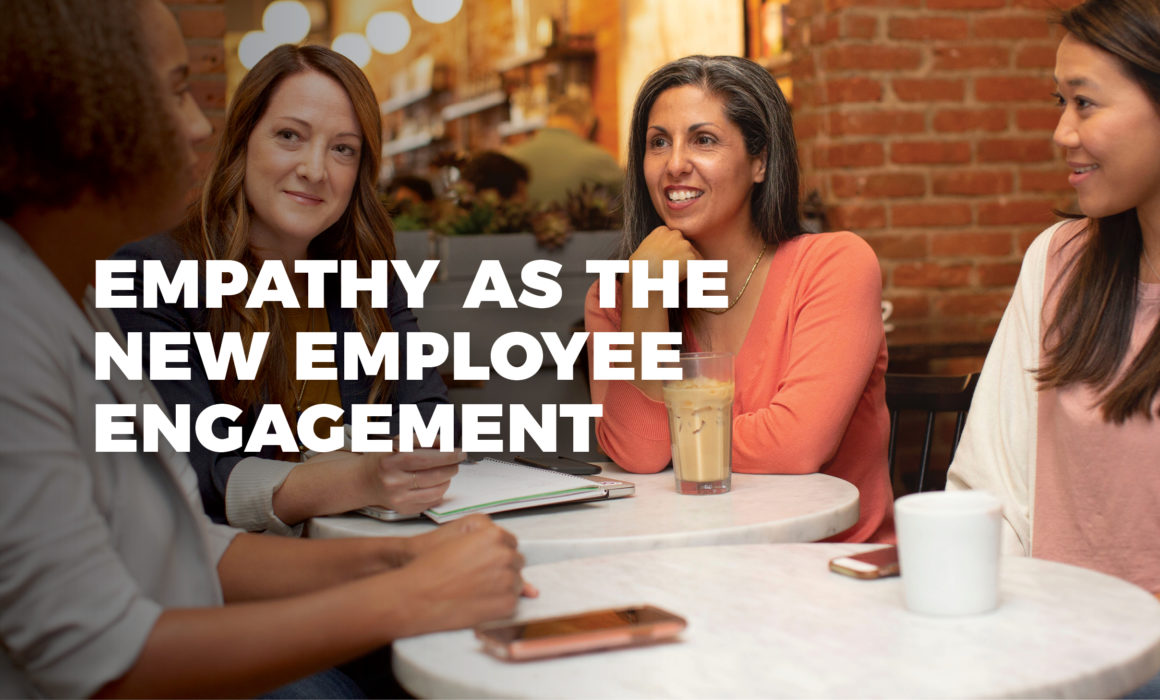Empathy as the New Employee Engagement
Whether you’re a company of five people or 5,000, having engaged employees is the key to success. However, we know through research that the U.S. is experiencing an engagement crisis. And the pandemic has only complicated matters and created more barriers. But it could also be creating opportunities for more productive teams.
As we think about the future, how can we foster an environment where employees are fully engaged? Where they feel valued? Where they feel a sense of autonomy over their work? Where they feel a sense of greater purpose connected to their work? One solution is being connected to the emotional feelings of others – otherwise known as empathy. It may sound simple, but can be difficult to accomplish.
In our June Shoff Chat, Kent Kramer, CEO and Ivan Cropper, VP of Marketing and Communications of Goodwill of Central and Southern Indiana addressed how empathy has played a role as they create a culture of trust and transparency for their more than 4,000 employees pre-, during and post-pandemic. Following are a few key insights they shared.
Be Intentional and Deliberate
The pandemic has opened the eyes of many managers and leaders regarding how to invest in the whole person, giving rise to new ways of engaging employees. While many of the tried-and-true management principles still hold true, they need to be accompanied by intentional and deliberate actions. Here are some examples:
- Foster a sense of belonging – “management by walking around” is still a solid strategy, but the visits need to be incorporated into the vision of the company. Understanding and listening to employees is important, but even more important is responding with action based on what you see and hear. Your people are part of the solution.
- Allow space for people – while productivity has its place, leaders must now focus on people’s lives, providing support and removing any barriers to performance. Allowing space for people to feel safe with leadership and to be with their families demonstrates a commitment to them that they matter. Leading with empathy allows your workforce to be more productive.
Keep it Simple
Over the past 18 months, companies have switched from focusing on the more sophisticated drivers of employee engagement in favor of a simpler approach – demonstrating empathy. With constant change, uncertainty and stress, an employee today doesn’t have the capacity for high levels of engagement. Basic fundamentals of empathy are found in the culture, values and hiring practices of organizations:
- Create a culture of empathy – executives who lean into their team members –getting to know them and addressing their specific needs – create environments where people feel valued and in turn practice empathy with each other. Other team building and management strategies can work in the short term but incorporating empathy into your core values and culture are more effective and will deliver desired long-term results.
- Hire for empathy – while empathy can be taught, it’s crucial to hire for it. Evaluate candidates not only on the skillsets needed, but on their heart for the mission and vision of the organization. For example, ask questions like, do they speak authentically? Do they raise each other up? It all starts from a place of emotional intelligence.
Communicate and Connect
Communications is a key component of any organization, and with new technology, work environments and expectations, it’s even more critical. Here are a few ideas to help your employees feel connected:
- Be transparent and talk daily in times of change or stress
- Survey your employees regularly for feedback and insights
- Provide tools where employees can generate communications with and for each other
- Utilize new technology to invite more participation
- Share decisions, success and failures quickly and openly
- Make an old-fashioned phone call periodically
People are the heart of all organizations and leaders and communicators who demonstrate empathy as a business philosophy and strategy will create a workplace where employees feel valued, not only for their skills, but for their contributions overall.
Want to be more intentional about empathy as a strategy for employee engagement? Let’s talk. Contact Meg Marra to get started.
Listen to this episode or past Shoff Chats episodes here.


